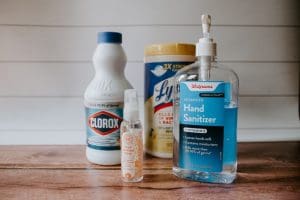Poison Prevention Awareness Month takes place every March, but it's an important topic every day. According to most recently published statistics from the CDC, unintentional poisoning took 87,404 lives in 2020.
It’s easy to forget that so many everyday substances we use at home are potentially dangerous, and Poison Prevention Awareness Month is a time to remind ourselves to be careful with the storage and accessibility of hazardous items.
Some of the most common types of accidental poisonings include ingestion of over-the-counter or prescription medications, ingestion of dishwasher tabs or laundry detergent pods, and accidental inhalation of strong chemicals such as pesticide spray or bleach fumes.
During the winter, be mindful of increased presence of useful but potentially dangerous antifreeze and snow salt. Additionally, keep your home safe with a carbon monoxide (CO) detector, as some heating strategies emit CO.
Household pets are also susceptible to accidental exposure to products like the ones listed above. In addition, many human foods are considered toxic to pets, such as grapes, onions and chocolate. See the ASPCA website for a complete list of foods to avoid giving your pet.
Important poison prevention information to keep on hand:
- 24-hour Poison Control Helpline: 1-800-222-1222 (free, confidential call that will connect you to your local poison control help center)
- Poison Help Online Tool: If someone has come into contact with a poison, this tool can give information about what to do.
- ASPCA Animal Poison Control Center: 888-426-4435
- Pet Poison Helpline: 855-764-7661
Remember, if an individual suspected of being poisoned has collapsed, has trouble breathing, or can’t be awakened, call 911 immediately.




Add a comment to: Poison Prevention Awareness